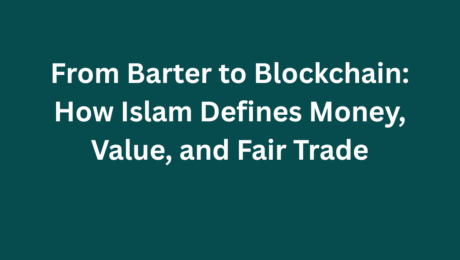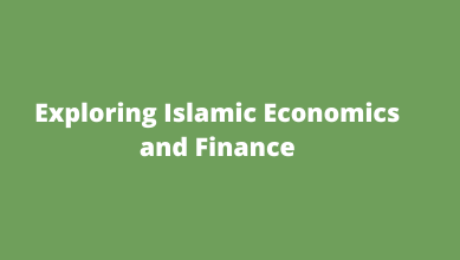From Barter to Blockchain: How Islam Defines Money, Value, and Fair Trade
Introduction Long before coins, banks or smartphones, people traded directly — exchanging salt for fish, barley for dates, or cloth for milk. Then came gold and silver coins. Today, we are entering the age of cryptocurrency and digital money. For Muslims, one timeless question connects these eras: What makes money truly halal? Islam does not
- Published in Economics and Finance, Islamic Economics
A Short History of Islamic Economic Thought
Islamic economic thought is one of the oldest intellectual traditions in the world, developing from the Qur’an and the Sunnah of the Prophet Muhammad (peace be upon him) and continuing through centuries of scholarly contributions. It blends moral guidance with economic reasoning, emphasising justice, equity, and the welfare of society. While modern Islamic economics emerged
- Published in Islamic Economics
Al Baraka Summit in London on Islamic Economics and Finance
Islamic banking and finance offer an alternative approach to conventional financial systems, grounded in Islamic principles and designed to comply with Shariah law. This system has gained popularity worldwide, particularly in regions with large Muslim populations, including the Middle East, Southeast Asia, and Africa, and has been trying to get a foothold in Western economies.
- Published in Economics and Finance, Islamic Economics
Islamic Inheritance Distribution: Detailed Heirs’ Shares and Guidelines
In Islamic inheritance law, the distribution of an estate is meticulously outlined to ensure fairness among heirs. The table below provides a comprehensive overview of how various categories of heirs receive their shares of the estate. It covers primary heirs such as spouses, children, and parents, as well as extended relatives including siblings, grandparents, aunts,
- Published in Economics and Finance, Islamic Economics
Understanding Zakat: A Pillar of Islam
Zakat, one of the Five Pillars of Islam, is not merely an act of charity but a fundamental obligation for all Muslims who meet certain financial criteria. Derived from the Arabic root “zakaa,” which means purification, growth, and blessings, Zakat purifies one’s wealth and helps reduce inequality in society by supporting the needy. It reflects
- Published in Economics and Finance, Islamic Economics
Basics of Islamic Finance
Islamic finance is a financial system that operates financing activities under Islam law (Shariah). It is based on the teachings conveyed in the Quran, Hadith (words of the prophet Muhammad), and other Islamic jurisprudence. Unlike conventional finance, Islamic finance respects the core values of equity, social responsibility, and ethics, especially in business transactions. Below are
- Published in Economics and Finance, Islamic Economics





